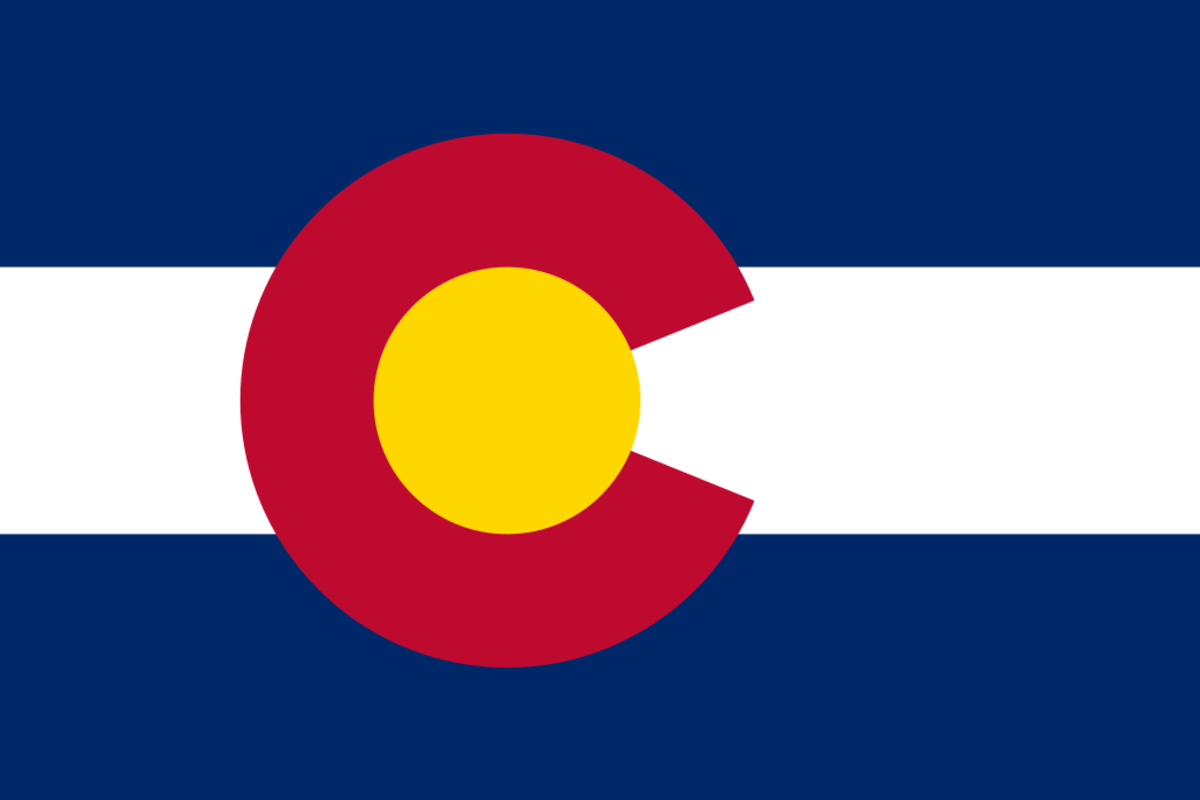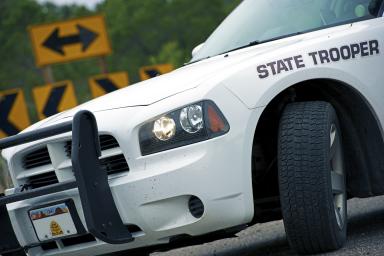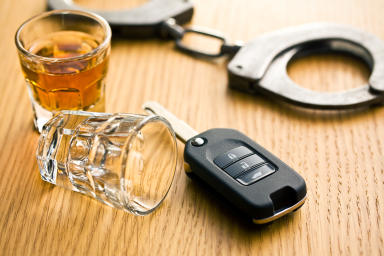Colorado DUI Laws

In 2022, Colorado recorded a total of 745 traffic fatalities, the highest in the state since 1981. The Department of Transportation revealed that impaired driving was a significant factor in most of these fatal crashes. By the year’s end, 37% of the state’s 681 total accidents were caused by impaired drivers, with alcohol being the leading cause of impairment. The CDOT also reported a 51% increase in accidents involving marijuana compared to 2021. Adams County, which recorded a total of 35 deaths, had the majority of impaired driving fatalities in 2022. This was followed by the counties of El Paso and Arapahoe with 27 and 21 deaths, respectively.
Taking these statistics into account, the CDOT works with other government agencies and organizations under the Advancing Transportation Safety Program to combat the prevalence of traffic crashes. This program aims to address risky motorist behaviors, implement road design improvements, protect vulnerable road users, and establish improved emergency response systems to ensure the safety of motorists and pedestrians throughout the state.
The CDOT and the state’s law enforcement agencies also continue to enforce local laws involving impaired driving to prevent the rise of accidents caused by drunk drivers. This article will offer a basic insight into these laws, along with the statutory guidelines that can affect the compensation an accident victim can pursue to recover from the damages and losses caused by an impaired motorist.
General DUI Laws in Colorado
Like all other states, Colorado prohibits motorists from driving while under the influence of alcohol, drugs, or any combination of such substances. There are a number of laws related to such an offense, with some determining whether an offender will face higher sanctions.
DUI, DWAI, and Aggravated DUI in Colorado
Colorado has separate legal limits that classify whether a motorist is driving while under the influence of alcohol or while impaired. Generally, an individual is charged with DUI if their blood alcohol concentration level is equal to or greater than 0.08%. On the other hand, they are charged with DWAI if their BAC level is more than 0.05% but less than 0.08%. Both offenses are considered misdemeanors, though they have different resulting penalties.
Any offender who has already committed three or more previous offenses will be charged with aggravated DUI, which is considered a class 4 felony and has heightened penalties as a result. The same applies if the offender is also found guilty of vehicular assault or homicide, or if their BAC level reaches or exceeds 0.17%.
Colorado’s Zero Tolerance Law
Colorado imposes its own zero-tolerance law, which prohibits people under the age of 21 from driving a vehicle if their BAC level is at least 0.02% but not more than 0.05%. Anyone who violates this law will be found guilty of underage drinking and driving, which is considered a class A traffic infraction. In contrast to DUI or DWAI offenses, a UDD infraction has relatively lighter sanctions, though these can be heightened in the case of repeat offenders.
>Colorado’s Implied Consent Law
Colorado also adheres to an implied consent law, wherein any motorist who chooses to operate a vehicle is deemed to have automatically given their consent to undergo a chemical test that will determine their BAC level. The test shall be carried out by a law enforcement officer who has sufficient cause to believe that the motorist in question is guilty of violating the state’s DUI, DWAI, or UDD ordinances.
Prior to administering a test, an officer shall inform a motorist of their rights and the consequences involved if they refuse to submit to the test. If the motorist refuses to cooperate, their refusal can be deemed admissible evidence of their guilt, and their driving privileges can be suspended for a maximum of one year.
Colorado’s Open Container Laws
In Colorado, drivers and front-seat passengers are prohibited from traveling through a public highway or the right-of-way on such a road while drinking an alcoholic beverage or consuming marijuana. They are also not allowed to travel with an open container carrying such substances within their vehicle. Exceptions can apply for:
Passengers who are not occupying the front seat of the vehicle
Open containers within the living quarters of a motor home, trailer coach, house coach, or house trailer
Open containers that are behind the last upright seat or any area not normally occupied by passengers if the vehicle has no trunk
Any person who violates these laws will be fined $50 with a surcharge of $16 if they have an open alcoholic beverage container, or $50 with a surcharge of $7.80 if found with an open marijuana container.
What Are the Penalties for a DUI in Colorado?
Colorado imposes a number of penalties for DUI and DWAI offenders based on how many offenses they have committed, whether the offender is a minor, and whether or not an individual is cited for aggravated DUI. Any motorist who commits another offense within a specific period after their previous offense will consequently face higher penalties. As mentioned above, offenses can be classified as either misdemeanors or felonies, with each category having its own set of sanctions.
Colorado’s penalties for DUI and DWAI offenses are as follows:
Those found guilty of DUI will also face license revocations lasting between 9 and 24 months, though first-time DWAI offenders will not have their license suspended. Offenders will also receive 8 to 12 demerit points on their license, depending on whether their offense involves DUI or DWAI. Additionally, they will be required to drive with an ignition interlock device starting with their second offense.
A person convicted of a third offense within the past seven years will have their license revoked for a mandatory duration of five years. In addition to the fines mentioned above, offenders may be required to pay penalty surcharges and court costs worth up to $500.
On the other hand, minors who are charged with a UDD infraction where their BAC level is between 0.02% and 0.05% face a different set of penalties. First-time offenders may pay $15 to $100 in fines and participate in community service for up to 24 hours. Repeat offenders pay a higher fine of $150 to $300 and can spend 10 to 90 days in jail. Additionally, they will receive four demerit points, and their license will be revoked for a minimum of three months to one year, depending on how many offenses they have already committed.
Colorado’s Dram Shop Law
It should be noted that Colorado follows a dram shop law, where establishments that serve or sell alcohol can be held liable if an intoxicated patron or customer injures another person. According to the law, this can occur if the establishment or alcohol licensee in question gave alcohol to a motorist who is under or already visibly intoxicated.
Under Colorado’s social host liability rule, the same principles apply to the host of any gathering or party who knowingly serves an alcoholic beverage to a minor or provides them with a place to consume alcohol. Even if they continued to serve alcohol to them despite their obvious intoxication, a host will not be responsible for any damages incurred as a result of a drunk driver in an accident if the latter is 21 or older.
In these scenarios, a plaintiff who wishes to take legal action against an establishment, licensee, or host must do so within one year from the date when the party in question served or sold alcohol to the defendant. The dram shop law will no longer apply if the plaintiff attempts to commence legal action past this given period.
To protect their finances and cover damages in a drunk driving accident, establishments can obtain liquor liability insurance either as part of their general liability coverage or as a standalone policy. This will allow the establishment or alcohol licensee to pay for their own share of a victim’s damages in case they are found liable for serving a drunk driver. In general, liquor liability insurance costs between $900 and $1,200 annually.
How Much Can Someone Sue for a Drunk Driving Injury in Colorado?
Because Colorado does not limit the total amount of economic damages that can be recovered in a drunk driving accident, plaintiffs can pursue and obtain maximum compensation for any monetary losses they have incurred. These range from medical and repair costs to lost income and long-term rehabilitative care expenditures. If the victim in the case died from their injuries, their dependents can also recover damages related to funerary costs.
However, Colorado does limit the total amount of non-economic damages in drunk driving accidents to $250,000, or $500,000 if the court finds sufficient evidence to warrant a higher cap. These types of damages are those that result from intangible factors, such as the victim’s pain and suffering, emotional distress, and loss of companionship. Both caps are subject to adjustments based on inflation.
Additionally, under Colorado’s dram shop and social host liability laws, the total damages that can be recovered from a liable establishment, alcohol licensee, or host are limited to $150,000. This damage cap is also adjusted to account for inflation.
Furthermore, punitive damages may be awarded in certain cases where the court finds enough evidence that the defendant acted with willful or wanton conduct and showed a heedless and reckless disregard for others’ safety. These damages are warranted as punishment for the defendant’s conduct and are not meant to increase the compensation that a plaintiff receives. Under Colorado law, punitive damages may not exceed the total amount of economic and non-economic damages awarded to the plaintiff.
The Statute of Limitations in Colorado
The civil statute of limitations for motor vehicle accident cases in Colorado is three years. As such, victims of crashes caused by a drunk driver must take legal action against the offender within this given time or risk having their claim or lawsuit dismissed by the court. In most cases, the statute begins the countdown from the date of the accident. The same period applies in accidents where the victim dies from their injuries, though the statute of limitations for a wrongful death claim starts on the date of the victim’s passing instead.
The statute changes slightly in a vehicular homicide case where the defendant fled the accident scene. For these cases, the deadline lasts for up to four years from when the accident took place.
Colorado does “toll” or delay its statute of limitations in cases where the one entitled to take legal action is deemed a “person under disability.” A plaintiff is considered as such if they are under 18, legally disabled with no representative, or mentally incompetent. For such a person, the statute will only begin or continue once they reach the age of 18 or recover from their legal or mental disabilities.
The statute can change slightly if a representative is assigned for the person with a disability. This representative will have two years to take legal action on the person’s behalf, regardless of whether the civil statute of limitations expires within that period. If the person with a disability passes away, their representative shall have one year from the date of death to take legal action on the former’s behalf. The same applies to decedents with an assigned administrator or executor.
On the other hand, if a person with a disability still has no assigned representative by the time their disability is healed, they will be allowed to file a suit within the given statute or two years from the time they overcome their disability, whichever period expires later.
Colorado also follows the rule of discovery in personal injury cases. Under this legal rule, the statute of limitations will not begin until the victim in a case discovers or should have reasonably discovered that the accident has caused the underlying injury.
Resources for DUI/DWAI Defendants and Folks Injured by an Impaired Driver in Colorado
Colorado Bar Association
The website of the Colorado Bar Association has several online resources and services available to the public. Coloradans with legal concerns can use the organization’s Find-A-Lawyer service to search for an attorney for potential legal representation based on their allotted budget and the attorney’s practice area. The website also has an Attorney Search option for those looking for an active lawyer in good standing within the state using their name and registration number. Additionally, people can visit the website for information on how to file a complaint involving ethical misconduct against an attorney or a judge.
Colorado Department of Transportation - Impaired Driving Resources
As part of its efforts to raise awareness about road safety and prevent drunk driving accidents, CDOT provides the public with access to different resources through its website. The department offers basic information concerning projects relevant to its goals, such as The Heat Is On campaign and the Shift Into Safe initiative. Website visitors can also browse the department’s Impaired Driving section for basic safety driving tips and DUI/DWAI laws in the state, as well as data related to accidents caused by drunk driving.
Colorado State Patrol - Crash Information
Citizens involved in motor vehicle accidents in Colorado can visit the State Patrol’s website to submit a report using its Online Crash Reporting System. They can also access the Records Request Portal to obtain a copy of a crash report or contact the Central Records Unit for inquiries concerning the price of report copies. Alternatively, they can contact any of the State Patrol’s districts or troops by referring to the agency’s online directory. Those who wish to report an impaired driver to the State Patrol can do so by dialing *277.
Mothers Against Drunk Driving - Colorado
MADD is a nonprofit organization that helps drunk driving accident victims in Colorado seek legal aid and emotional support. Its division in Colorado provides state residents with assistance in the form of referrals to relevant organizations, resources related to local drunk driving laws, and guidance regarding the state’s criminal and civil justice systems. Additionally, it can help victims find an attorney within their respective areas for potential legal representation. People can contact the organization’s 24-hour hotline at 1-877-623-3435 to speak with a victim advocate or email victims@madd.org for additional inquiries.
Expertise.com StaffAuthor
Step into the world of Expertise.com, your go-to hub for credible insights. We don't take accuracy lightly around here. Our squad of expert reviewers, each a maestro in their field, has given the green light to every single article you'll find. From rigorous fact-checking to meticulous evaluations of service providers, we've got it all covered. So feel free to dive in and explore. The information you'll uncover has been stamped with the seal of approval by our top-notch experts.




